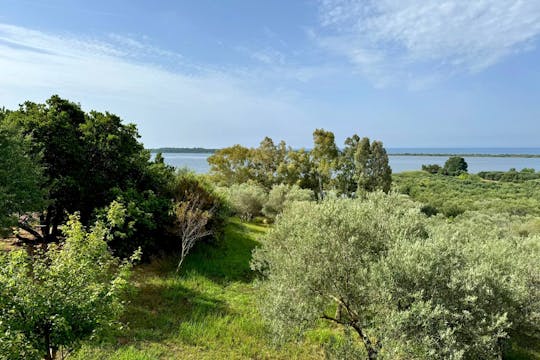
Corfu - Nat Geo Day Tour: Flavours of Corfu, Cook with Locals at an Organic Farm
Feel the soul of Corfu at Bioporos Organic Farm, situated on the banks of Korission lagoon. Your deep dive into Corfiot farming begins with an introduction to your hosts for the day and the true stars of the show: the farm's owners.First, you'll join the host's mother who will teach you how to make organic cosmetics, such as face masks, beeswax cream, and more. You'll use ingredients which you can find in your kitchen or garden back home, and take your creations with you at the end of the day.Next, prepare a traditional Corfiot pie, mix up your own tzatziki and knead bread. Your host will light the wood-burning oven and soon you can enjoy the aromas of the slow-cooked pie and bread you helped to prepare.While your lunch bakes, the owner himself will lead you through the farm, proudly showing off his collection of farming tools, his olive trees and bee hives. His tales illuminate the relationship between Corfu and olive farming, and his passion for regenerative agriculture shines through when he demonstrates how he promotes the conservation of endemic plant species. You'll also discover the history of this EU-protected lagoon and its impact on the local people, as well as details of the surrounding wildlife, rare flora and numerous bird species found here.After your trip around the farm, you'll savor lunch fresh from the oven, paired with a fresh salad from the farm's garden. For dessert, relax with a cup of coffee while you gaze over the idyllic scenery.
de, en
de, en
